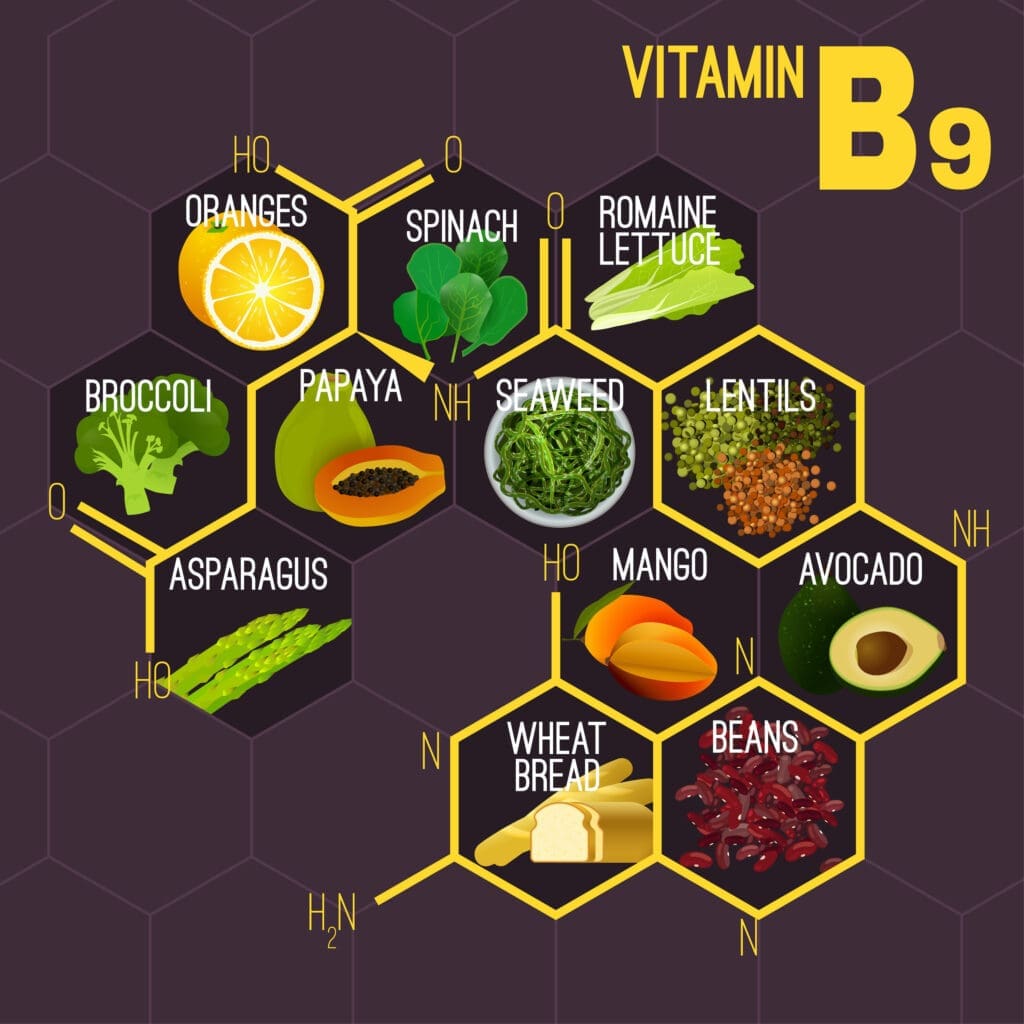Folate is a form of vitamin B9 that the body needs to maintain red and white blood cells (hematogenesis), convert carbohydrates into energy (metabolism), synthesize and maintain the genetic building blocks of the body (DNA and RNA). A daily intake of folate is also needed to maintain a healthy pregnancy, ensure normal fetal development, and prevent certain serious birth defects.
Folate is naturally present in many foods, particularly dark green vegetables, beans, and legumes. There are also vitamin supplements made with a synthetic form of folate known as folic acid. In the United States and around 80 other countries, breakfast cereals, flour, bread, and other foods are fortified with folic acid to prevent folate deficiency within the general population.
Health Benefits of Folate
Folate is essential to good health. If you don’t get enough from your diet or folic acid supplements, you may develop a folate deficiency. Although this is rare in the United States, there are certain groups that are vulnerable, including pregnant women, infants, and younger children (whose intake may fall short due to their rapid growth)
Consuming enough folate in your diet may help prevent a number of health conditions, including some cases stroke, neural tube defects, aging-related macular degeneration, and even some types of cancer.
Cardiovascular Disease
Folate is used by the body to maintain and repair blood vessels. It also helps lower the level of an amino acid called homocysteine that contributes to cardiovascular disease.
Neural Tube Defects
Neural tube defects (NDTs) are birth defects of the brain or spinal cord that typically occur during the first month of pregnancy. The two most common NDTs are spina bifida and anencephaly.
Macular Degeneration
Aging-related macular degeneration (AMD) is an eye disorder characterized by the progressive loss of the center of the field of vision. The underlying cause of macular AMD is not well understood, although some scientists believe that it is the result of inflammation and oxidative stresses placed on the eyes over a lifetime.
Cancer
Folate has a contradictory relationship with cancer. On the one hand, the chronically insufficient intake of folate may increase the risk of brain, breast, cervical, colorectal, lung, ovarian, pancreas, and prostate cancers. On the other, the excessive intake of folic acid may increase the risk of certain cancers, mainly prostate cancer.

Fruits & Vegetables that are High in Folate
Fruits and vegetables that contain 80 micrograms or more folate (20% of the Daily Value per reference amount) are considered high in folate.
These include:
Dark Green Leafy vegetables
Lima Beans
Peas, Split
White Beans
Fruits & Vegetables that Provide a Good Source of Folate
Fruits and vegetables that contain 40 micrograms to less than 80 micrograms folate per reference amount (10-19% of the Daily Value per reference amount) qualify to carry the label “good source of folate.”
Fruits and vegetables in this group include:
Cabbage
Papaya/ Paw Paw
Pepper





